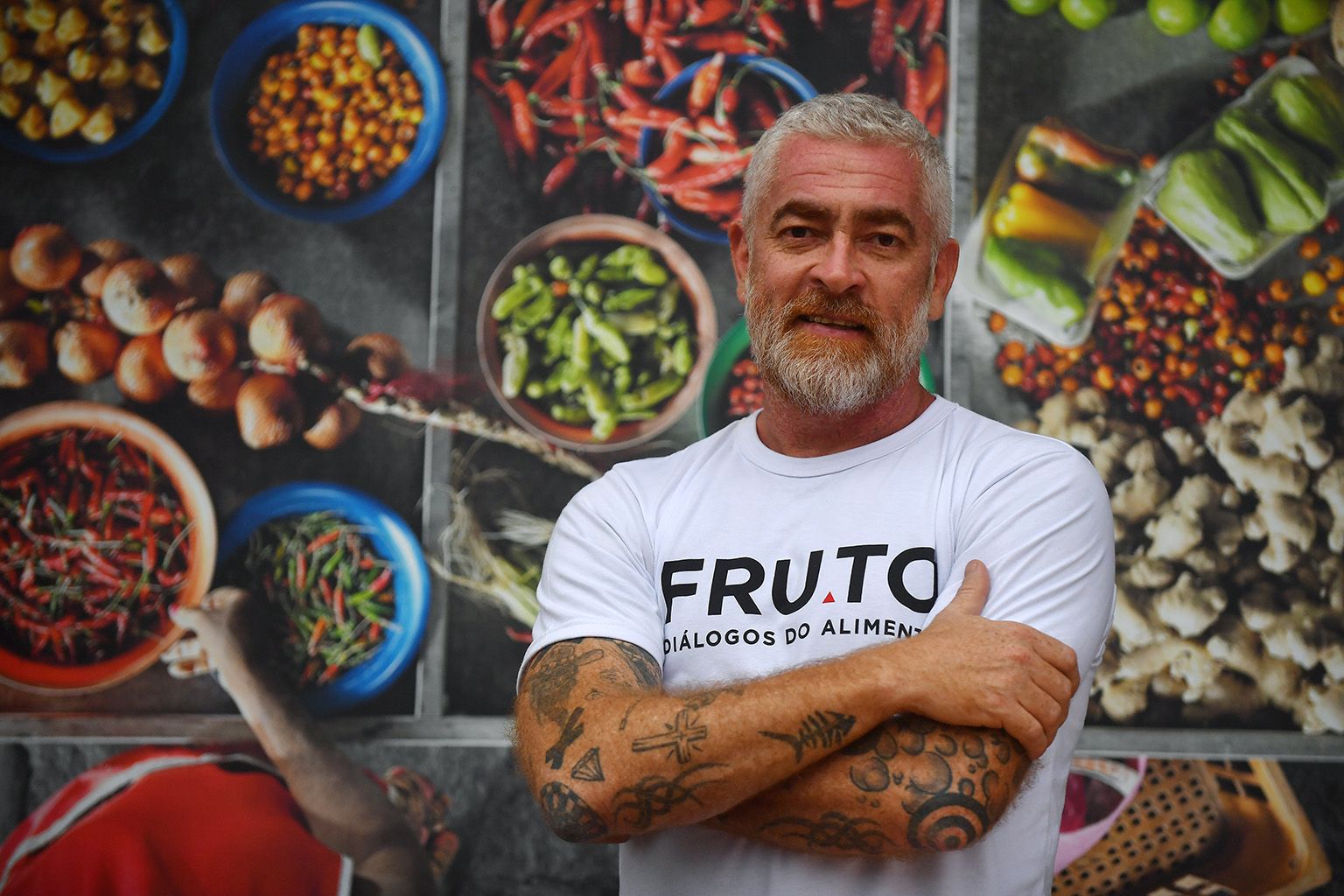Brazil may produce much of the world's food as a commodities exporter but needs to pay more attention to its own taste buds, the country's top chef Alex Atala says.
In an interview with AFP, the French-trained chef who draws inspiration from the Amazon rainforest urged his homeland to start valuing its hidden culinary riches, rather than just export food in bulk.
"Food is given to us by nature, it's a gift of life," he said in Sao Paulo this weekend during a conference he'd organized on alternative, environmentally friendly foods.
The tattooed former punk and DJ, now 49, worked at restaurants in France owned by Jean Pierre Bruneau and Bernard Loiseau, as well as training at the famed Hotel de la Cote D'Or, before opening his D.O.M. restaurant in Sao Paulo in 1999.
D.O.M. currently ranks 16 on the World's 50 Best Restaurants list, which describes him as "the rock star chef" putting "Brazilian gastronomy on the world map."
For Atala, Brazil's cuisine is one of still unfulfilled promise.
"South America and Brazil and in some sense Sao Paulo is the only place in the world where all the elements of the food chain are present," he said.
The Amazon, where indigenous tribes live in harmony with the forest's natural food stores, provides huge gastronomic riches, he says.
But above all, Brazilians need to change their attitude towards food, he emphasized.
"I always talk about the disconnection between man and food. I'm not worried that 90 percent of Brazilians have never tried cupuacu or bacuri (from the Amazon). What really gets to me is the number of people in the world who don't even known what an orange tree is," he said.
"Sadly, we are part of a society where we're taught from childhood to love money and to suffer for money (and) not to throw even a penny away. Yet why then do we throw food out?"
"Man learns to respect food more when he's in misery. I hope we don't have to go through that to learn to value it."
That throw-away culture has repercussions far beyond what's on our dinner tables, he says, citing the relentless destruction of the Amazon rainforest.
"Deforestation is a fact. I do not know what is most under threat: the Amazon or the next generation. There may be a new generation that will not experience the beauty that we have, will not taste the flavors that we have," he said.
"Today, the world eats practically the same thing and that is sad. You lose a treasure, flavors, culture."
Get cooking Brazil
Latin America certainly has deep roots when it comes to world cuisine. As Atala says, corn, potatoes and chocolate are some of the foods that started in the region.
But when you mention interesting cooking from Latin America, Mexico and Peru are likely to jump out. Brazil? Hardly.
For Atala, his homeland is still trying to establish its identity on the world's menu. He may have the third ranked restaurant in Latin America, behind two Peruvian chefs, but generally the country lags.
"If I say tomato, mozzarella and basil, you'll say Italy. Coriander, lime and onion -- Peru. We can travel the world through flavors," he said.
"Brazil still hasn't worked this out.... Brazil is a producer of commodities and we have more pride in this than in supporting our own culture."
Asked to name Brazil's iconic food, he doesn't hesitate: "Cassava, cassava and cassava," he said with a laugh.
He calls the root "fascinating" and a potential replacement for much of the wheat, a common cause of allergies, consumed around the globe.
As for the celebrity status and media platform given to big chefs these days, Atala says chefs can be "the strongest voice in the food chain."
But he's not getting ahead of himself.
"The first role of a chef has to be what he set out to do on day one: to make delicious food."
Cover photo: Brazilian chef Alex Atala | © Nelson ALMEIDA / AFP
